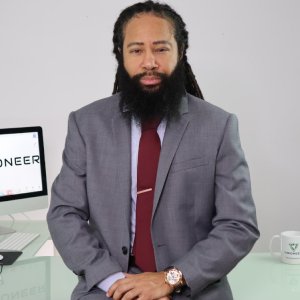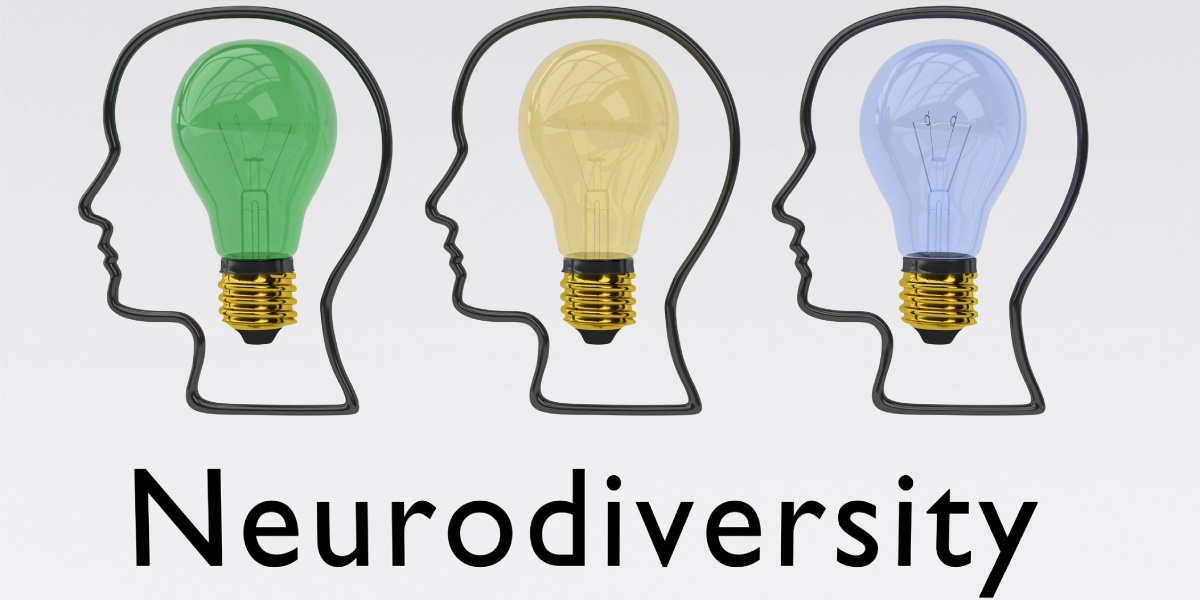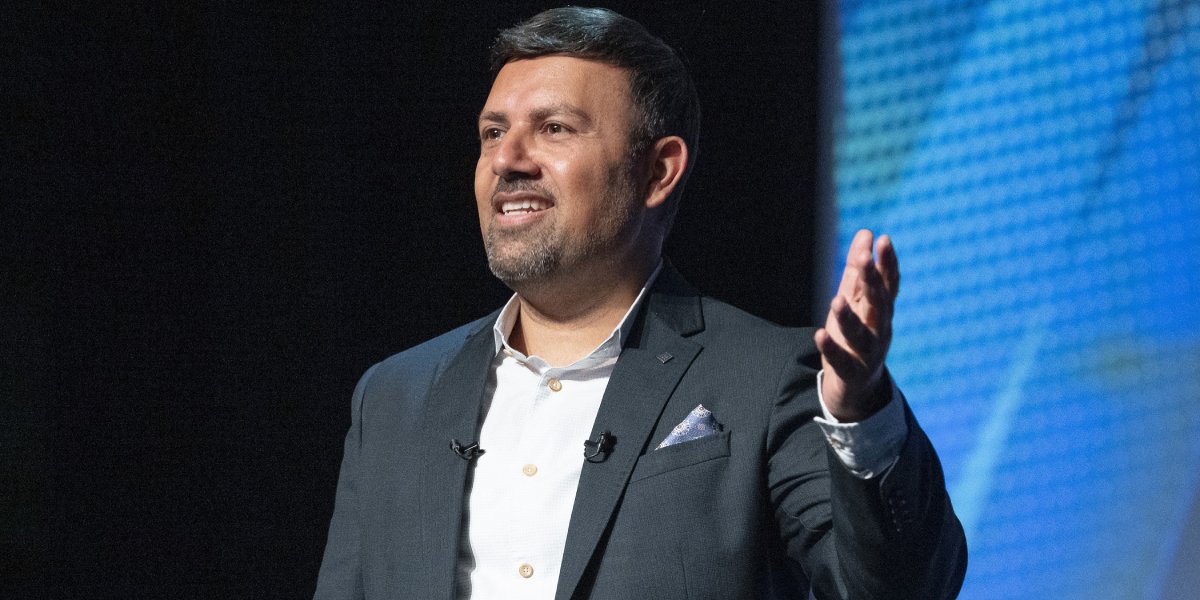Future-Ready Leadership: Scaling Success on a Foundation of Neurodiverse Insight

Gavriel Legynd
06/06/2025
CEO builds successful company embracing neurodiversity as competitive advantage.
Diverse Minds:
Neurodiversity becomes your secret weapon for innovation.
For years, I struggled to become the leader I thought I should be—someone who fit the traditional mold, who masked my neurodivergence to seem more "professional." With two PhDs, a law degree, and other graduate degrees and decades in technology and cybersecurity, I knew the technical aspects of what our customers needed, but something was missing.
My dream wasn't just to build a successful company, but to create a workplace where neurodivergent "misfits" like me could solve the world's most technically challenging problems.
In the early days of VisioneerIT, I operated from what I thought was strength—technical excellence. We approached each client challenge with sophisticated solutions designed by brilliant minds trained similarly to mine. But something wasn't working and despite our technical expertise, we weren't gaining traction in the industry.
The breakthrough came unexpectedly. During a project review, a new team member began asking questions that we did not have answers to about our clients' desired outcomes, which completely reframed our understanding of the client's needs. I realized we had been solving the wrong problems all along—focusing on technical perfection rather than human usability.
When Expertise Becomes the Blindspot
Our approach to digital transformation follows a pattern: assess, recommend, implement, and train. We hired for technical brilliance and solved problems with efficiency.
What we missed was how our ideal customer profile (Architectural, Engineering, and Construction) professionals actually work. The messiness of creative collaboration or the specialized software incompatible with security protocols and the workflows that defy IT boundaries.
Our blind spot wasn't technical—it was human. And it was costing us contracts and growth.
Our growth had plateaued despite our technical excellence. While we focused on building flawless systems, other firms were winning contracts by better understanding how these professionals actually worked.
I began to recognize a troubling pattern within our team. Without realizing it, I had assembled a group that mirrored my own strengths—technical brilliance and analytical thinking. "I don't feel like my different way of looking at problems matters here," one team member confided before departing. I had inadvertently created an environment where diverse perspectives couldn't flourish—the very perspectives we needed to better serve our clients.
Write for us
Inspire Others. Share Your Expertise. Start Conversations
At Global Authority, we believe in the power of diverse voices and fresh perspectives. Whether you’re an industry expert, a passionate storyteller, or someone with a unique experience to share, your words can inspire, educate, and engage our readers.
Superpowers unleash warp-speed potential
The transformation began with a personal revelation. At a leadership conference, I attended a session on cognitive diversity in the workplace. The speaker—also neurodivergent—described how his company sought out different thinking styles because they generated more innovative solutions.
It was a moment of clarity. Rather than hiding my neurodivergence, I asked myself what if I embraced it as a strength? What if the way my mind connected seemingly unrelated concepts wasn't a distraction but a competitive advantage in solving complex problems?
My executive team began rebuilding VisioneerIT around this principle, recruiting for cognitive diversity—people whose minds worked differently and also included people who came from different cultures and geographic locations. I stopped seeing my neurodivergence as something to mask and started viewing it as my most valuable asset.
Slowing down to speed up
We reinvented ourselves by making a bold decision to prioritize our team’s needs over immediate client demands. This approach wasn’t about neglecting clients but about empowering our employees. By investing in their growth, and valuing their diverse perspectives, we encouraged our team to bring their best selves to the table, resulting in us delivering exceptional value to our clients.
We instituted "perspective rotations" where team members from different backgrounds would lead project planning. We created "question-first" protocols where solutions couldn't be proposed until at least twenty questions had been asked about the client's context.
The transformation went deeper than metrics could capture. Team members began naturally leaning on each other's diverse strengths. Our technical experts sought input from those with industry experience, while creative thinkers collaborated with analytical minds. We realigned our core values around this interdependence, making "cognitive partnership" central to our identity.
The results? Client retention increased. We gained commercial and international contracts with top Architectural, Engineering, and Construction firms. And our team became more operationally effective—not because we deployed better technology, but because we designed solutions that aligned with how people actually worked.
The diverse insights once seen as tangential became our greatest advantage. We weren't just securing systems or building innovative solutions—we were building digital solutions that worked for the people who use them.
Recommended
Paralympic athlete argues we adapt to adversity, not overcome it.
CEO escapes abusive marriage and corporate cage to redefine authentic success.
Entrepreneur teaches self-love and empowerment as foundation for success.
"Diversity is being invited to the party; inclusion is being asked to dance."
- Vernā Myers
Diverse Minds:
Neurodiversity becomes your secret weapon for innovation.
Get the strategy + business newsletter delivered to your inbox
Yes, you can provide text passages or key points from the book so that I can use them in the analysis. If this is not possible, then you can simply provide a
Yes, you can provide text passages
Yes, you can provide text passages
Yes, you can provide text passages
Hindsight is always 20/20
Looking back, I would have embraced these principles years earlier. They've now become woven into the fabric of VisioneerIT, defining not just what we do but who we are:
- Embrace neurodiversity as your competitive edge. For too long, I hid what makes my mind different. Now I see my neurodivergent thinking as my greatest gift—spotting patterns neurotypical thinkers often miss. We seek out cognitive differences; they're our secret weapon.
- Value perspective over credentials. Had I known earlier, I'd have hired fewer people with identical backgrounds. Some of our most innovative team members came from client industries or completely different fields. They ask the questions technical experts never think to ask.
- Ask better questions before offering answers. This shift revolutionized our client relationships. We've built question protocols into every project kickoff, and team members are recognized for the quality of their questions, not just their solutions.
- Put your people before your clients. Counter-intuitive? Absolutely. Effective? Beyond measure. When we fully supported our team's unique perspectives, they naturally extended that same care to our clients. The impact on retention has been remarkable.
- Judge success by real-world impact. We've abandoned tracking hours in favor of measuring how solutions solve actual human problems. This forced us to develop metrics focused on outcomes rather than efficiency.
Get the strategy + business newsletter delivered to your inbox
Yes, you can provide text passages or key points from the book so that I can use them in the analysis. If this is not possible, then you can simply provide a
Yes, you can provide text passages
Yes, you can provide text passages
Yes, you can provide text passages
Before They Were Icons
Challenge Your Knowledge of Business Transformations
Reinventing a business model is tough—but it can be done. Take inspiration from remarkable stories of successful transformations from the past. Test your expertise by taking our brief quiz.
Recommended
Paralympic athlete argues we adapt to adversity, not overcome it.
CEO escapes abusive marriage and corporate cage to redefine authentic success.
Entrepreneur teaches self-love and empowerment as foundation for success.
Explore the latest news
Father finds purpose through daughter's research, transforms failing city project.
07/06/2025
Award-winning author discovers branding through pretzel history and animatronic dragons.
07/06/2025
Internet marketing expert teaches building authority through proven experience only.
07/06/2025
Three strategies accelerate expert recognition: influencer partnerships, media, books.
07/06/2025







